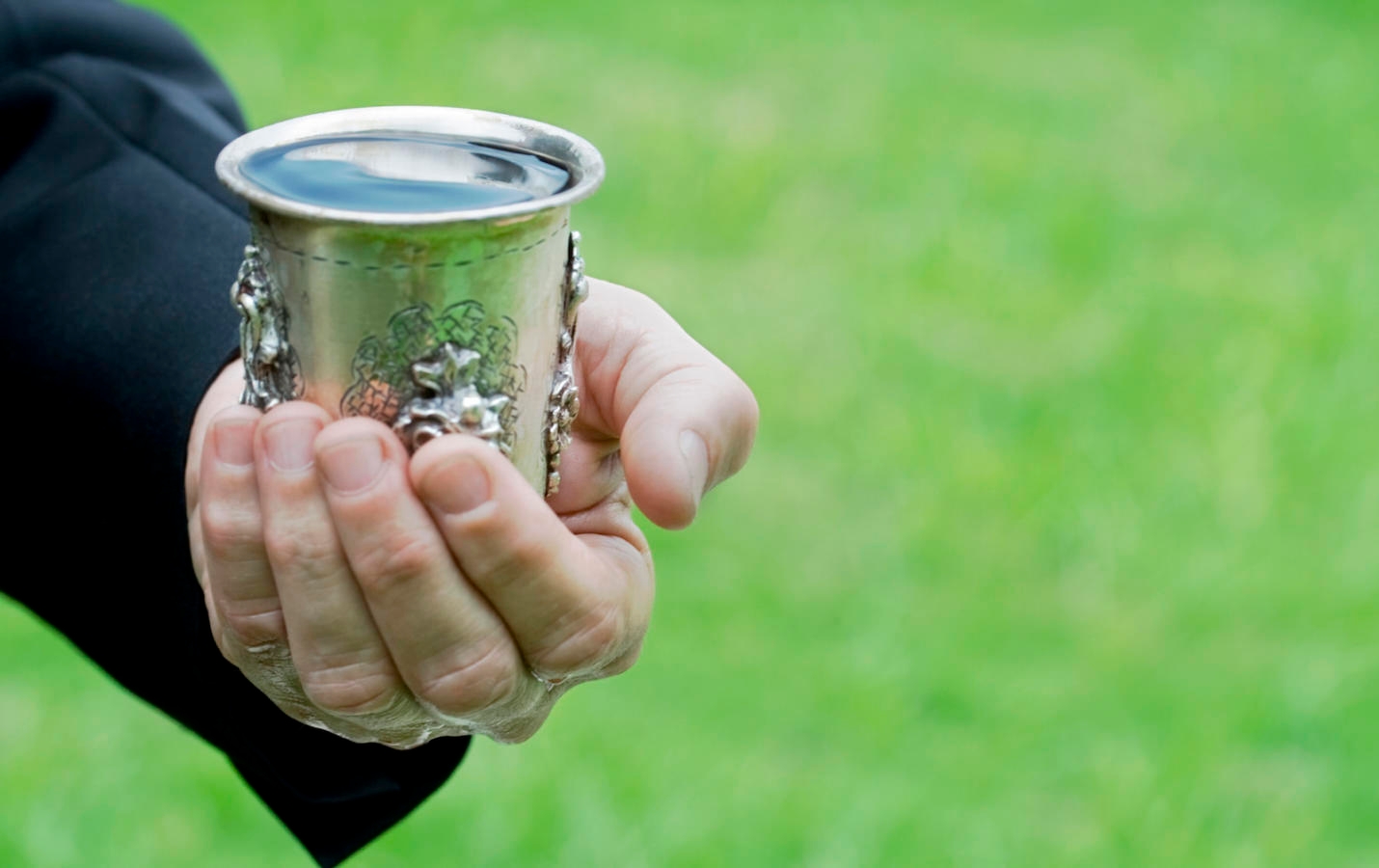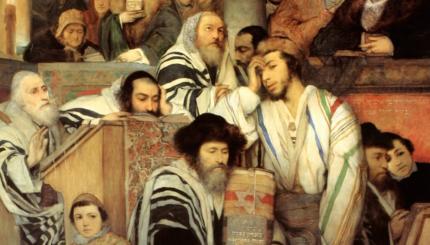Candle lighting signals the onset of Shabbat, but it is — the blessing recited at the table over wine — that inaugurates Shabbat in the home.
The kiddush liturgy invokes the themes of creation and the exodus, but Jewish mysticism, or , represents this ritual as one of personal spirituality, in which we both invoke and manifest divinity.
The Zohar, the central and canonical text of Jewish mysticism, overlays the kiddush cup of wine with an abundance of symbolic associations. In the very first teaching of the introduction, the Zohar suggests that this cup is symbolized by a rose: specifically the Rosa gallica versicolor, a striped rose whose flowers are crimson splashed on a white background, bearing thirteen petals and supported by five leaves that protect the vulnerable bloom
The rose represents Shechinah, the feminine aspect of God. She is imbued with thirteen divine attributes of compassion, symbolized by the whiteness of the petals. The crimson splashes refer to the aspects of judgment that reside within Shechinah, in harmony and balance with compassion. Five strong leaves protect the flower just as Shechinah is protected from those forces that seek to denigrate divine power in the world.

Help us keep Jewish knowledge accessible to millions of people around the world.
Your donation to My Jewish Learning fuels endless journeys of Jewish discovery. With your help, My Jewish Learning can continue to provide nonstop opportunities for learning, connection and growth.
The Zohar’s next move is to enfold biblical verse and the human body within its textual fabric. The “five sturdy leaves … are called Salvation; they are five gates. Concerning this mystery it is written: I raise the cup of salvation (Psalms 116:13). This is the cup of blessing, which should rest on five fingers, no more, like the rose, sitting on five sturdy leaves, paradigm of five fingers. This rose is the cup of blessing.”
Elsewhere, the Zohar indicates that there are 70 words in kiddush, signifying the 70 crowns with which we adorn Shechinah. In rabbinic literature, the number 70 connotes completion or universality. Thus, decorating Shechinah with 70 words suggests that we have the capacity to make Her replete with all dimensions of holiness, making Her supreme.
This kabbalistic description — densely layering natural, liturgical, biblical and human images — invites us to participate in taking responsibility for how divinity is manifest in the world. As we initiate the Sabbath day, the onus is placed on us to model for our families and friends the qualities of Shechinah, a holy mixture of lovingkindness and rigor, and to remind those gathered around our Shabbat table that we have the power to invoke divinity in this world.
When you hold the kiddush cup in your hands, take a moment to contemplate that you are cradling Shechinah Herself, bringing divine aspects of love and discipline to your performance of the ritual. Kabbalists will often take one further step, holding the cup in one’s right hand, symbolizing compassion, and lightly supporting the right hand with the left, as yet another demonstration of how we want our Shabbat to be filled with love, yet accompanied by consistency and commitment, as represented by the left hand.
For the kabbalists, these symbolic associations are not mere ideas. Rather they are portals to a transformed reality, in our hearts and in the world. Bringing a transformed consciousness to the ritual brings us into intimate connection with these different aspects of God — and as a result, with those aspects in each other.
Joel Hecker is a professor of Jewish mysticism at the Reconstructionist Rabbinical College.



